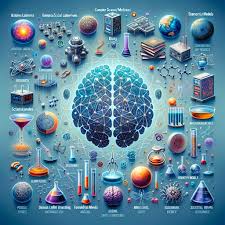Stamp: Born, Max en Franck, James (Germany, Federal Republic 1982)
Born, Max en Franck, James (Germany, Federal Republic 1982)
12 August (Germany, Federal Republic ) within release Born, Max en Franck, James goes into circulation Stamp Born, Max en Franck, James face value 80 German pfennig
| Stamp Born, Max en Franck, James in catalogues | |
|---|---|
| Michel: | Mi:DE 1147 |
| Stamp Number: | Sn:DE 1381 |
| Yvert et Tellier: | Yt:DE 979 |
Stamp is horizontal format.
James Franck (1882-1964) and Max Born (1882-1970), Nobel Prize physicists, developed quantum theoryAlso in the issue Born, Max en Franck, James:
- Stamp - Born, Max en Franck, James face value 80;
- Stamp - Friedrich Wöhler face value 50;
Stamp Born, Max en Franck, James it reflects the thematic directions:
Famous People refers to the fame and public attention accorded by the mass media to individuals or groups or, occasionally, animals, but is usually applied to the persons or groups of people (celebrity couples, families, etc.) themselves who receive such a status of fame and attention. Celebrity status is often associated with wealth (commonly referred to as fame and fortune), while fame often provides opportunities to make money.
Commemorations are a type of religious observance in the many Churches of the Anglican Communion, including the Church of England. They are the least significant type of observance, the others being Principal Feasts, Principal Holy Days, Festivals, and Lesser Festivals. Whereas Principal Feasts must be celebrated, it is not obligatory to observe Commemorations. They are always attached to a calendar date, and are not observed if they fall on a Sunday, in Holy Week, or in Easter Week. In Common Worship Commemorations are not provided with collects or indications of liturgical colour. However, they may be celebrated as Lesser Festivals if local pastoral conditions suggest it.
Science is a systematic discipline that builds and organises knowledge in the form of testable hypotheses and predictions about the universe.Modern science is typically divided into two or three major branches: the natural sciences (e.g., physics, chemistry, and biology), which study the physical world; and the behavioural sciences (e.g., economics, psychology, and sociology), which study individuals and societies.The formal sciences (e.g., logic, mathematics, and theoretical computer science), which study formal systems governed by axioms and rules, are sometimes described as being sciences as well; however, they are often regarded as a separate field because they rely on deductive reasoning instead of the scientific method or empirical evidence as their main methodology. Applied sciences are disciplines that use scientific knowledge for practical purposes, such as engineering and medicine



